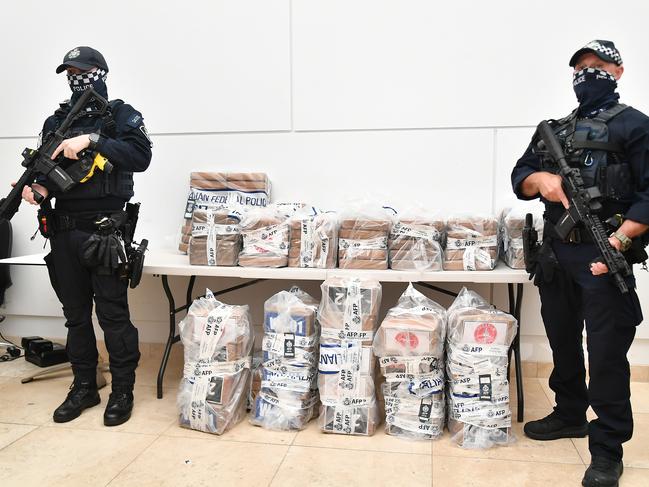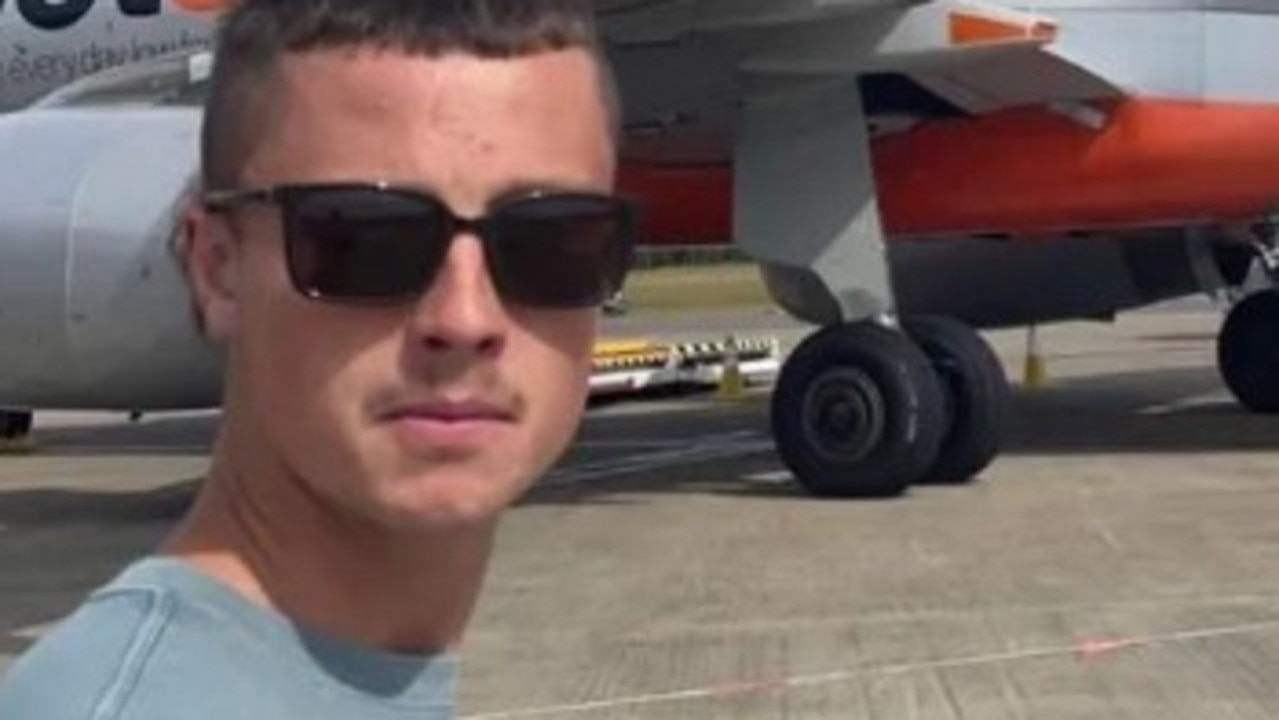Comancheros boss denied bail despite being ‘on periphery’ of coke bust
An alleged high-ranking Comancheros bikie boss has been denied bail over Australia’s biggest ever cocaine bust, despite his lawyer arguing the case is circumstantial.

Police & Courts
Don't miss out on the headlines from Police & Courts. Followed categories will be added to My News.
An alleged high-ranking Comanchero bikie charged over trying to smuggle $760m of cocaine into Queensland was allegedly “there ready with the pick-up boat” to get the drugs from a larger fishing boat returning towards the coastline, a court has heard.
Police allege Comanchero Brisbane chapter vice-president Ryan Sean Givney, 44, was part of a transnational organised crime syndicate that allegedly sourced 2.34 tonnes of cocaine.
Investigators tracked recreational vessel True Grit that met a “mother ship” in international waters 460km off the Queensland coast to allegedly source the cocaine before the boat returned towards the Queensland coastline.
Eleven men and two juveniles were arrested at the weekend after a joint Australian Federal Police and Queensland Police operation, codenamed Tyrrendor.
The fishing boat True Grit became stranded about 18km off the northeastern tip of K’gari after it allegedly picked up the cocaine haul.
Tactical officers arrested Givney and another man near the Strathdees Boat Ramp, near the Port of Bundaberg about 7pm on Saturday.
Two other men were also arrested on the stranded boat.
Another three men were arrested at a fast-food restaurant in Bundaberg East and three more men and two youths were arrested in Bundaberg East during a traffic stop.
Mark Gary Sloan, 51, of Victoria Point, was also arrested.
The 13 have been charged with conspiracy to import a commercial quantity of border controlled drugs.

Givney’s matter was heard in Bundaberg Magistrates Court on Monday, when a bail application for his release was made and ultimately refused.
Senior prosecutor with the Commonwealth Director of Public Prosecutions Daniel Trigger submitted that Givney would be an unacceptable risk if he received bail and that he could commit further serious offences or not comply with bail conditions.
During the bail application, the court was told Givney had received an eight year sentence for drug trafficking and was on parole at the time of the alleged offences.
Mr Trigger said Givney was not on the boat that picked up the drugs. But he said Givney drove from Brisbane to the Bundaberg region and was “there ready with the pick-up boat, the smaller boat” to pick up the haul of cocaine that was allegedly on the larger boat.
Givney also allegedly attempted to source a boat motor and was at the Strathdees Boat Ramp at Burnett Heads when other alleged conspirators arrived there.
Defence solicitor Adam Moschella, of Bell Criminal Lawyers, argued the Crown’s case was based on Gibney’s “mere proximity”.
“In my submission the strength of their case isn’t overly overwhelming,” Mr Moschella told the court of the Crown case.
“If you look at the majority of the schedule of facts, they need to be able to demonstrate that conspiracy first before a lot of that evidence is admissible against him.
“Because it consists mainly of the party conversations that he is not involved in.
“They need to be able to demonstrate an agreement between Mr Givney and at least one of the other persons involved.
“You are talking about an importation of a significant amount of cocaine,” he said.
“And there is not a text message, there is not an email, there is not an encrypted message.
“My client gave his phone to police by the way … once he was arrested.
“There is nothing. Effectively it is proximity. His liability is being attributed by mere proximity.”

Mr Moschella said all of the material submitted put Givney on the periphery.
“There is nothing concrete in a sense of ‘here is a text message’ or ‘here is an intercept’,” he said.
“None of the intercepts actually involve Mr Givney. They all involve other parties.
“To say ‘oh it’s a conspiracy, oh it’s a conspiracy,’oh it’s a conspiracy’, well they need to get over that first hurdle of establishing an agreement.”
Mr Moschella said any bail risks could be appropriately addressed with conditions such as daily reporting to authorities, a curfew and consent to an electronic monitoring device.
He said Givney was a painter in the automotive industry, painting rims and spray-painting cars.
Givney had significant ties to the North Cleveland area and had a three-month-old child and two other children he cared for.
Magistrate John McInnes said with the material before him the case against Givney was entirely circumstantial.
“Circumstantial of course doesn’t mean inferior,” he said.
“I have to take into account a number of matters.
“The nature and seriousness of the offence with which the defendant is charged is obviously the higher end of the scale carrying a maximum of life and significant sentences are quite common for principal offenders.”
In refusing bail, he said there was an unacceptable risk that if granted bail Givney would reoffend or fail to appear in court.




